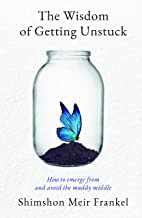Torah Reading for July 10, 2021
When you walk into a synagogue what do you feel? This week’s double reading, Matot and Massei, on the Shabbat that is the first day of the auspicious month of Av, offers us some insight into this question. After all, these readings teach of a new phase in the history of our heritage, the settlement period when we began to find permanent homes for ourselves. Is that what your synagogue is for you? [Michael R. Mantell, Ph.D]
Torah Reading for July 10, 2021 Read More »
Jewish Religion, Michael Mantell
